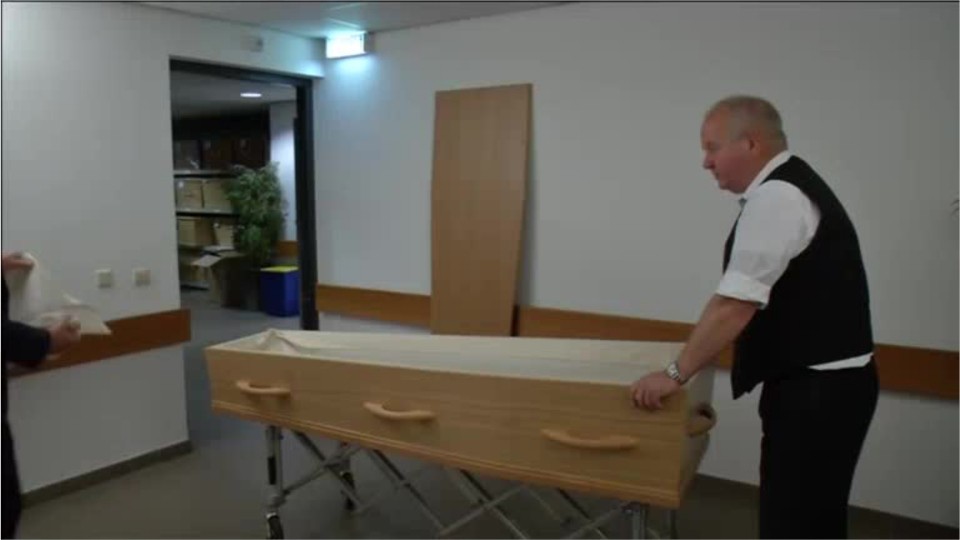Embalmers
Embalmer, Licensed Embalmer, Trade Embalmer
 Select a military branch to see samples.
Select a military branch to see samples.
Dental Assistant; Dental Assistant Apprentice; Dental Assistant Craftsman, Dental Hygienist; Dental Assistant Helper; Dental Assistant Journeyman, Dental Hygienist; Health Services Management; Health Services Management Craftsman; Health Services Management Craftsman, Health Information Technology; Health Services Management Journeyman; Health Services Management Journeyman, Health Information Technology
Mortuary Affairs Specialist
Health Services Technician; Medical Administration Specialty
Personnel Retrieval and Processing Officer; Personnel Retrieval and Processing Specialist; Personnel Retrieval and Processing Technician
Hospital Corpsman; Mortician
No similar titles were found.
What they do:
Prepare bodies for interment in conformity with legal requirements.
On the job, you would:
- Conform to laws of health and sanitation and ensure that legal requirements concerning embalming are met.
- Apply cosmetics to impart lifelike appearance to the deceased.
- Join lips, using needles and thread or wire.
Knowledge
Business
- customer service
- management
Math and Science
- chemistry
- psychology
Arts and Humanities
- English language
- philosophy and religion
Safety and Government
- law and government
Skills
Basic Skills
- talking to others
- listening to others, not interrupting, and asking good questions
Problem Solving
- noticing a problem and figuring out the best way to solve it
Abilities
Verbal
- listen and understand what people say
- communicate by speaking
Hand and Finger Use
- keep your arm or hand steady
- hold or move items with your hands
Ideas and Logic
- notice when problems happen
- order or arrange things
Personality
People interested in this work like activities that include practical, hands-on problems and solutions.
They do well at jobs that need:
- Stress Tolerance
- Self-Control
- Integrity
- Attention to Detail
- Dependability
- Sincerity
Technology
You might use software like this on the job:
Word processing software
- Microsoft Word
Data base user interface and query software
- HMIS Advantage
- Twin Tier Technologies MIMS
Spreadsheet software
- Microsoft Excel
Education
Education: (rated 3 of 5)
associate's degree or
bachelor's degree
usually needed
bachelor's degree
usually needed
Get started on your career:
Find Training
Find Licenses
Apprenticeship.gov
Job Outlook
Below Average
New job opportunities are less likely in the future.
Explore More
- Crematory Operators
- Funeral Attendants
- Funeral Home Managers
- Licensed Practical & Licensed Vocational Nurses
- Morticians, Undertakers, & Funeral Arrangers
You might like a career in one of these industries:
See more details at O*NET OnLine about Embalmers.





